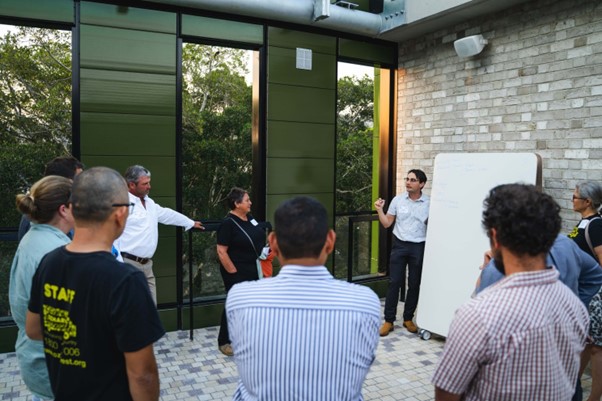
Building Innovation Ecosystems in Agrifood: A conversation with Dr James Krahe, CEO of TCI organisational member 'Future Food Systems CRC'
When asked about the future of Australia’s agrifood sector, Dr James Krahe, CEO of Future Food Systems CRC (FFS), points directly to the importance of innovation ecosystems. For him, the sector’s future will be shaped less by forecasts or bold predictions and more by the long-term work of cultivating collaboration and learning.
“At FFS, we’ve committed ourselves to the long journey of building innovation ecosystems and learning by doing,” he explains. “It’s not simple, and it’s certainly not fast, but it’s the kind of work that matters if we want to see a more collaborative, innovative, and sustainable agrifood sector by 2030.”
Starting in place: Liverpool and the Liverpool Plains
The FFS ecosystem story began in urban Liverpool and the regional Liverpool Plains of New South Wales, areas where early efforts to create ecosystem connections faced setbacks. “Looking back, it was probably a little too early,” Krahe reflects. “The ecosystems there were still finding their feet, and on top of that, there were major political changes and significant new infrastructure projects creating opportunity and uncertainty. We struggled to understand the shared vision, and so we couldn’t help to develop a potential model, but we did walk away with valuable lessons.”
The experience taught FFS that ecosystems cannot be forced; they grow best when the right conditions are nurtured. It also revealed the need for humility in ecosystem-building –recognising that timing, context, and culture are just as important as strategy.
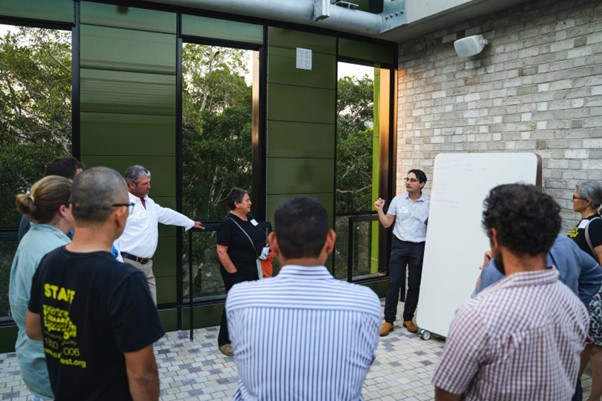
Caption: Dr James Krahe conducting ideation workshop at the launch of the Coffs Agrifood Living Lab (CALL) R&D project in Coffs Harbour
Learning through partnerships
Since then, FFS has sought to work with partners in different regions and at different stages of development. In Western Australia, FFS supported the Food Innovation Precinct Western Australia (FIPWA) through the establishment of its Sustainable Innovation Food Technologies (SIFT) centre, helping to anchor innovation in a tangible hub. In Queensland, the partnership with the Food and Agribusiness Network (FAN) provided insights into how a regional cluster grows, and how it negotiates the complex path of scaling while holding onto its collaborative spirit.
More recently, in Coffs Harbour, FFS has begun work with CALL (Coffs Agribusiness Living Lab). “Each place teaches us something new,” Krahe says. “You can’t just lift and shift an ecosystem model – it has to be embedded in the geography, in the people, and in the industries that make up that community.”
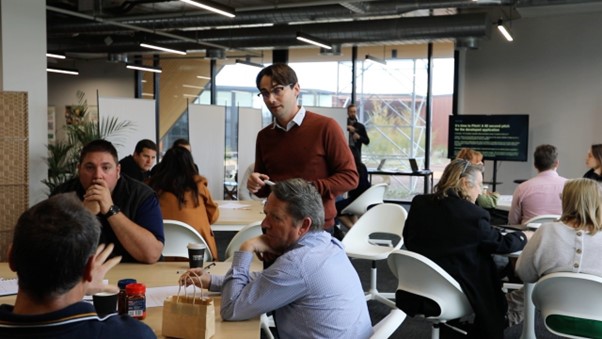
Caption: Dr James Krahe conducting the Future Food Systems’ New Product Development Workshop at the Food Innovation Precinct in Western Australia
Anchoring in research and education
Krahe admits that one of the steepest learning curves for FFS was working out how the “research helix” of innovation could genuinely support ecosystem growth. “At the beginning, we honestly didn’t know how to examine ecosystems through the lens of research,” he says. “It required a lot of self-reflection and a willingness to study not just the ecosystems, but ourselves and our own assumptions.”
Through collaborations with Queensland University of Technology (QUT), the University of New South Wales (UNSW), and Murdoch University, FFS has developed stronger mechanisms to support the movement of ideas into practice. “It’s about translation – taking research into the field and embedding it into systems where it can create impact,” Krahe notes. “That’s what makes ecosystems resilient and sustainable.”
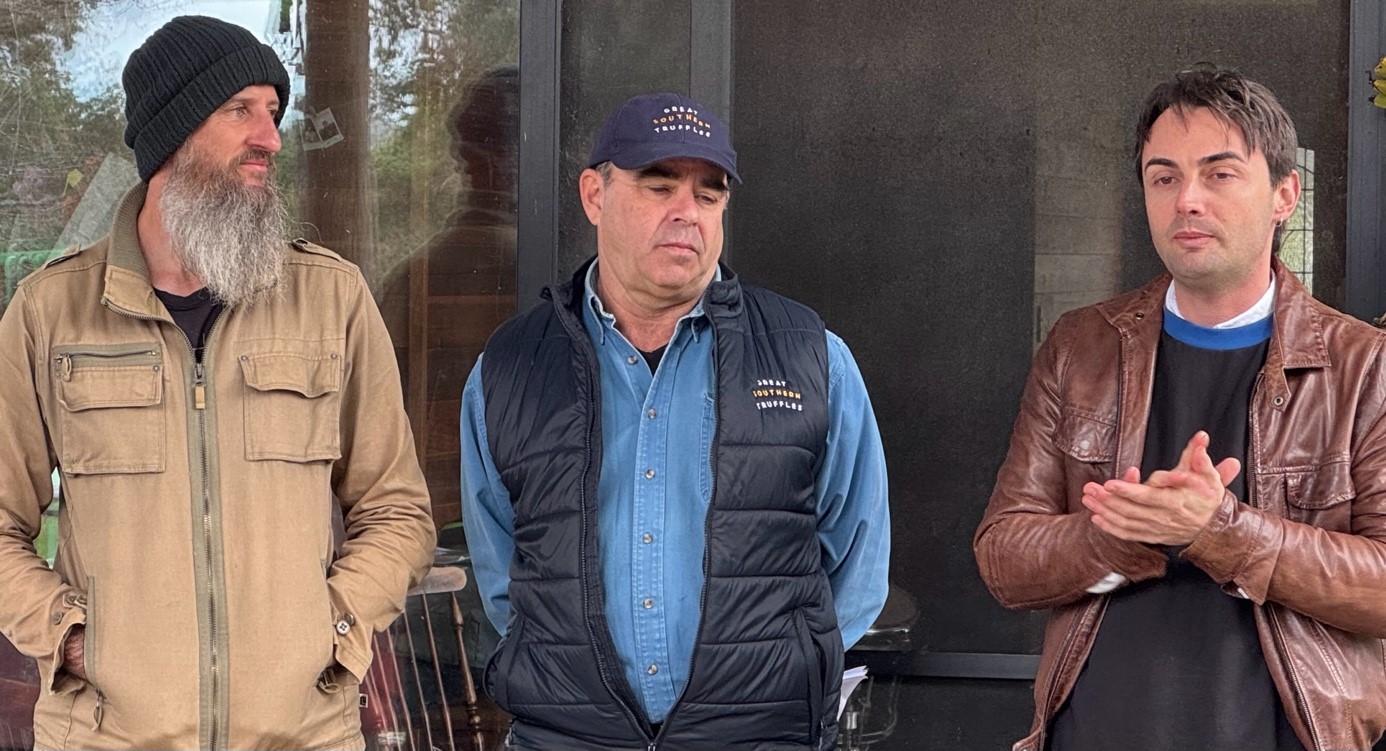
Caption: Dr Mark McHenry (Mt Lindesay), Adam Wilson (Silverplace / Great Southern Truffles) and Dr James Krahe speaking on symbiotic relationships leading to emerging organic innovation ecosystems at Mt Lindesay, Denmark, WA, Aug 2025
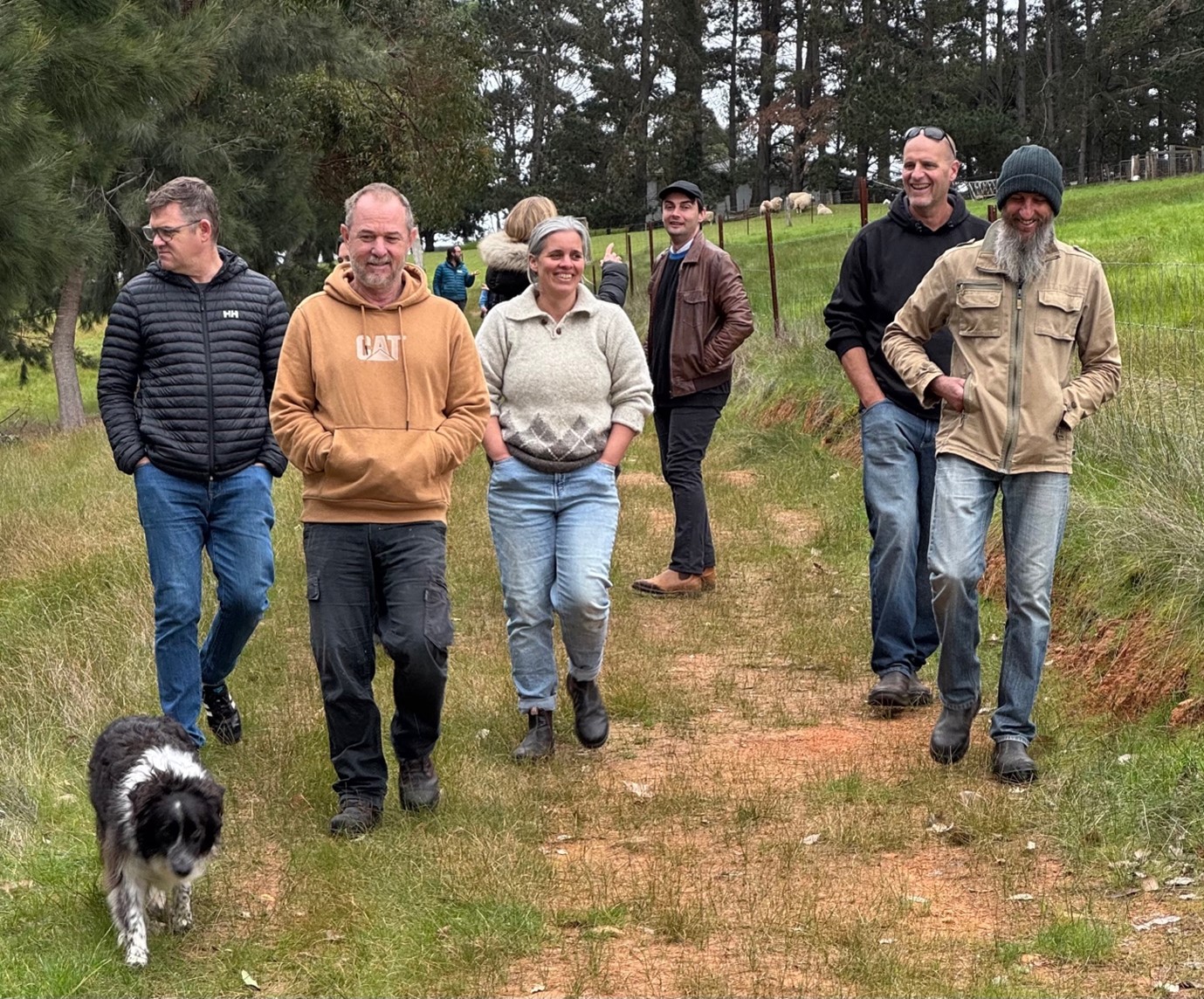
Caption: Formation of organic clusters. Mt Lindesay, Denmark, WA
A serendipitous discovery: The truffle cluster
One of the most surprising developments has come from FFS’s work in Western Australia’s truffle industry. “Our usual model has always been to test technologies and practices within an established ecosystem,” Krahe explains. “But with truffles, something different happened.”
As FFS supported the translation of research into the truffle farms of southern WA, an organic cluster began to take shape. “Farmers, scientists, producers, and even retailers started coming together – sharing knowledge, updating each other on research progress, and hosting events,” Krahe says. “We didn’t set out to create a cluster, but it sprouted naturally. That’s the power of ecosystems when the conditions are right.”
This serendipitous model – where a cluster forms around the real-world application of research – has opened new possibilities for how FFS thinks about ecosystem development. “It’s taught us that innovation doesn’t always follow a top-down plan. Sometimes, it grows organically, and our role is simply to identify, nurture and support it.”
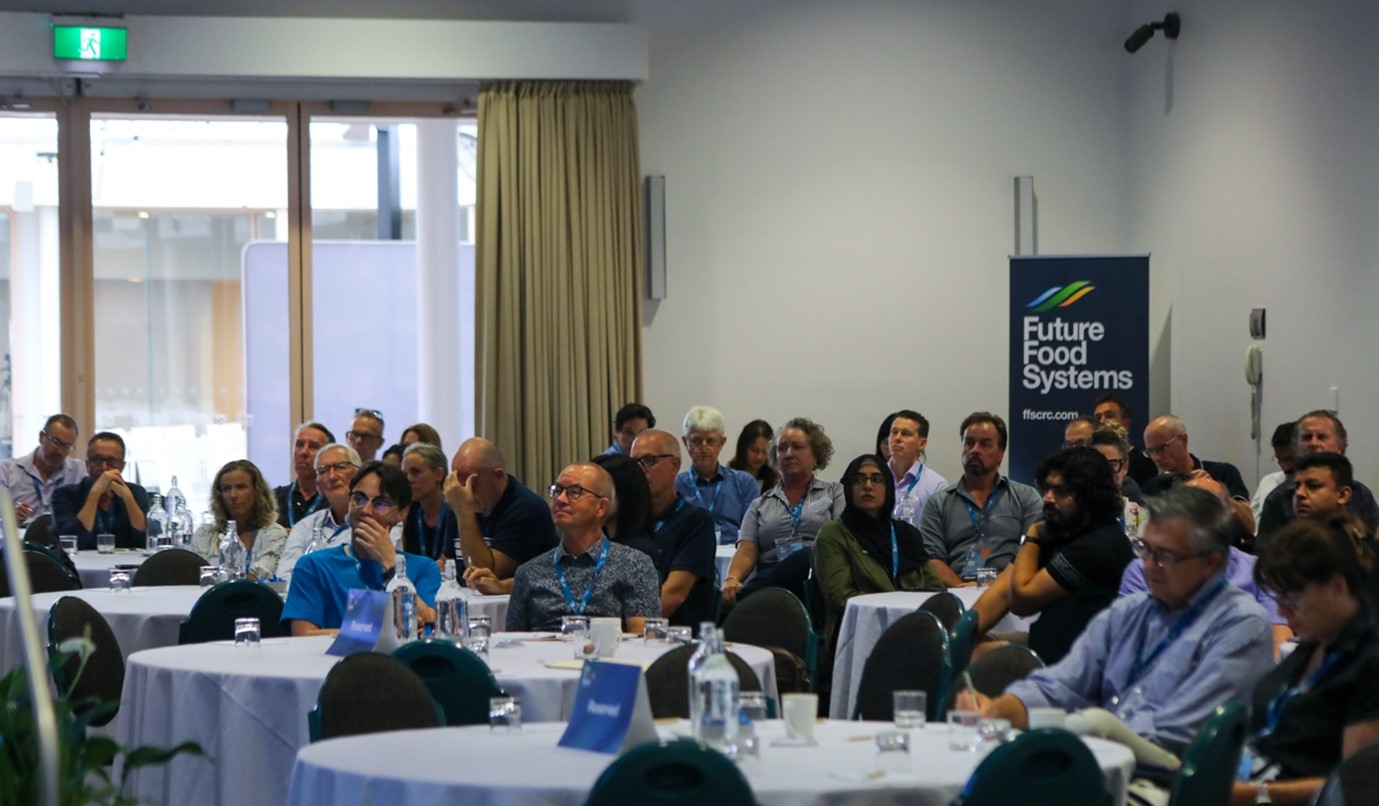
Caption: Dr James Krahe and Prof Doug Baker and attendees at Australia’s National Food conference “For Food’s Sake” held by Future Food Systems in Coffs Harbour in February 2025
Looking ahead
As the conversation winds down, Krahe emphasises that the journey is far from over. “We know this work takes time. We’re committed to continuing until at least 2029, not because we think we’ll ‘finish’ the job, but because those years give us the chance to keep learning – about ourselves, about our partners, and about the ecosystems we’re helping to build.”
For Krahe, the goal is simple yet profound – to ensure Australia’s agrifood innovation ecosystems are as robust and sustainable as possible. “If, by 2030, we’ve played even a small role in helping the sector become more collaborative and innovative, then we’ll know this journey has been worth it.”
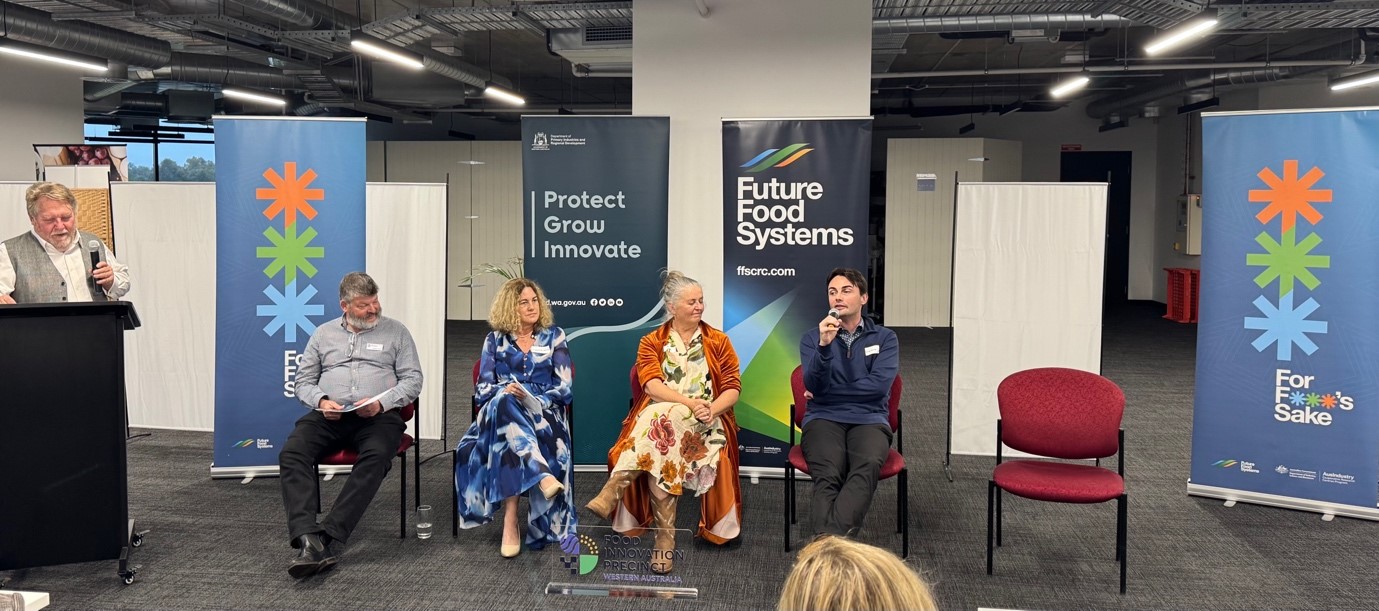
Caption: Speaking on innovation ecosystems at the Sustainable Innovation Food Technologies (SIFT) Centre open night at FIPWA, WA August 2025




